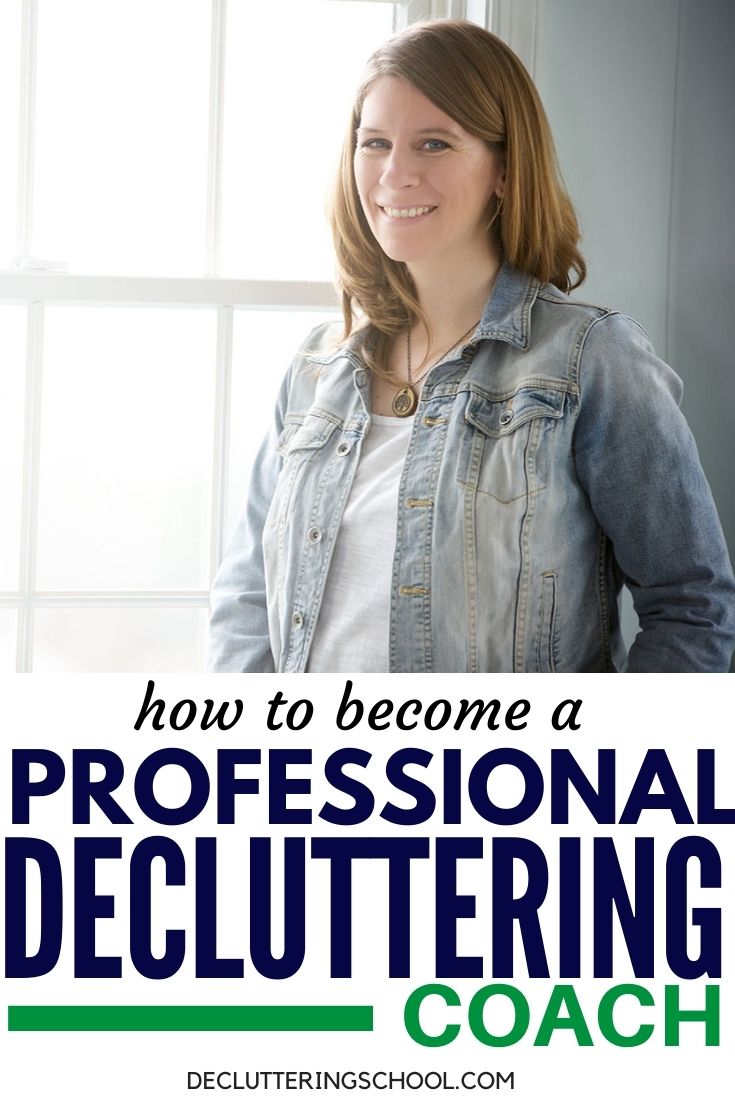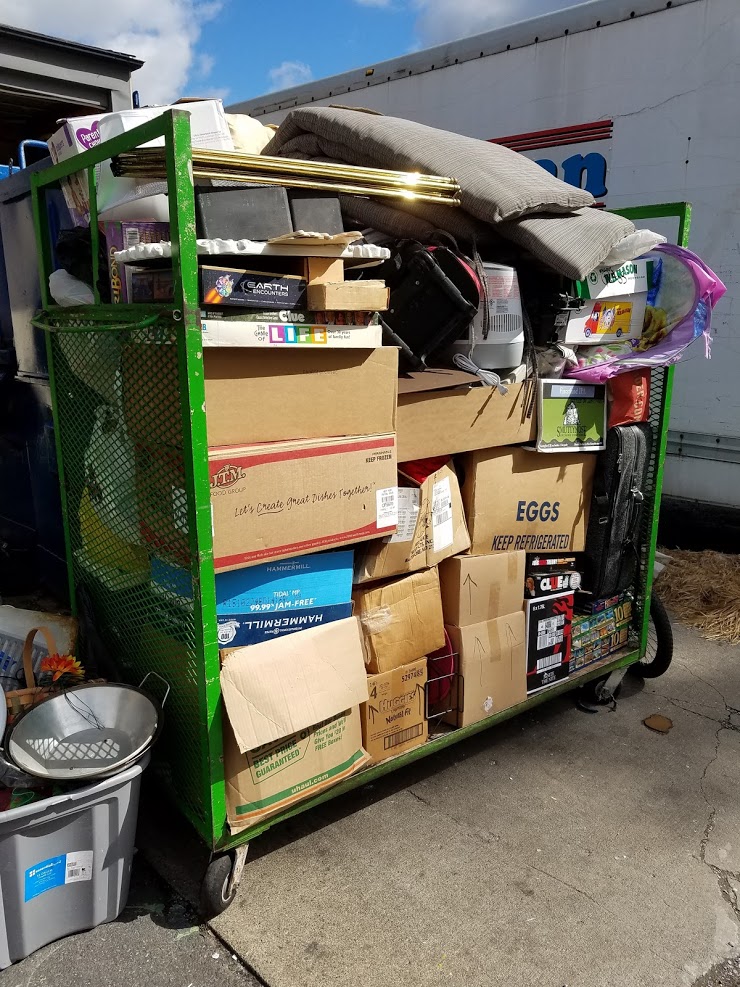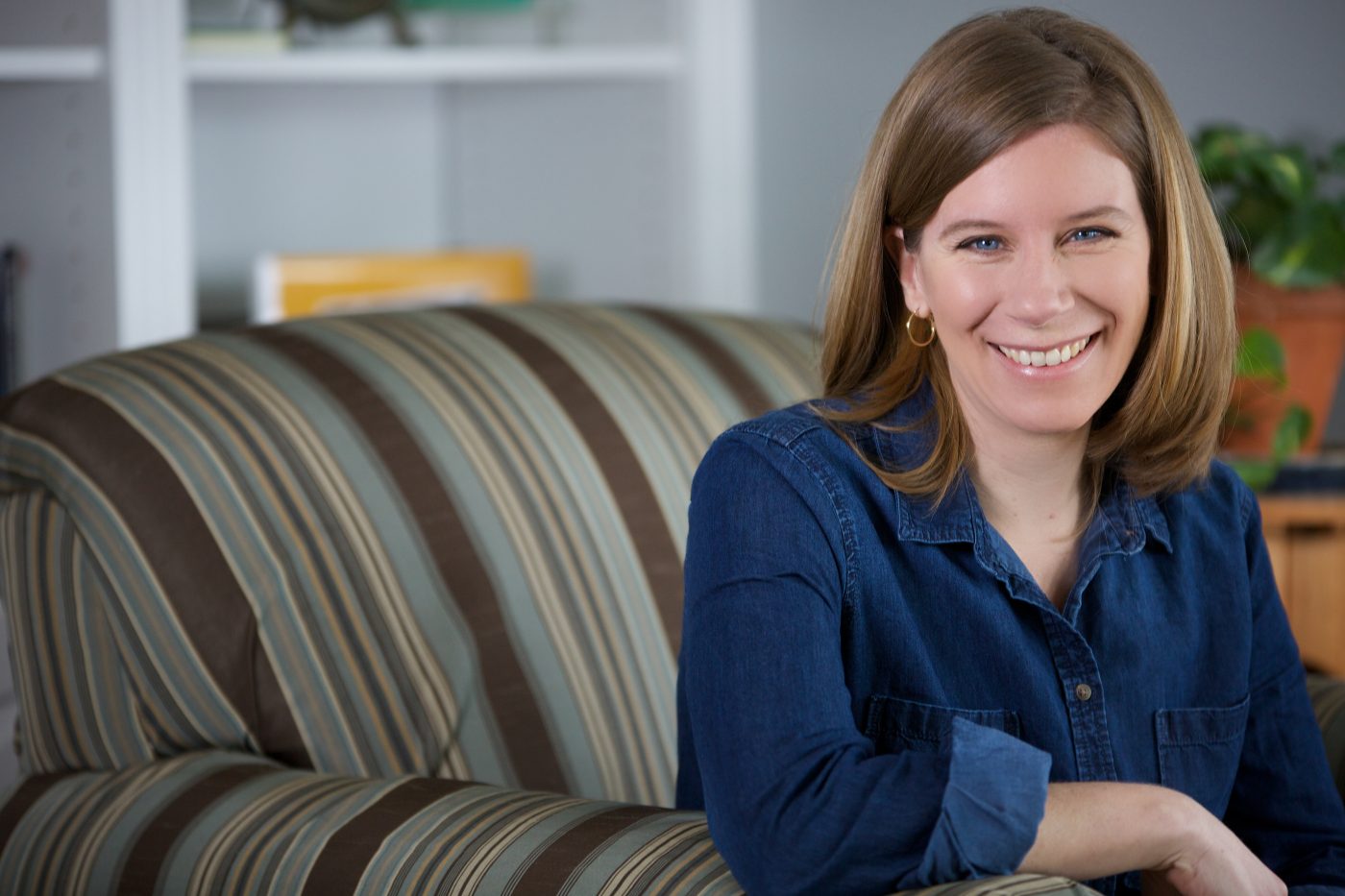It’s a dirty, dark secret of millions of women.
If you’ve lived it you know.
It’s having a “catch-all” room.
It’s refusing to open the door to a delivery person or always having a virtual Zoom background so no one sees what your kitchen really looks like.

It’s trying desperately to rescue boxes of family mementos that have crumbled over time and feeling like you’ve failed your relatives when you realize everything has broken down beyond repair.
Clutter creates crippling shame and depression for millions of women.
But do you know how widespread this problem is?
For instance, did you know that between 9 and 10% of the American public rents a storage unit at an average cost of $88 a month? That’s $1056 a year to store things that cannot be easily accessed. If you talk to 10 friends, you’ll likely find one of them who’s paying over $1,000 a year on storage.
No wonder donations to thrift stores are up 38% as of 2019 (and the number is likely way up again since 2020).

Clutter takes a significant toll on our health too.
People with extremely cluttered homes are 77% more likely to be overweight.
It’s easy to see that this problem is HUGE and it’s not going away any time soon.
The good news is that decluttering has become trendy.
People are embracing minimalism and “Swedish death cleaning.” You’ll find dozens of Facebook groups dedicated to the process of decluttering, minimalism, and letting go.
This is a positive trend but it leaves behind a large part of the population who struggles with the mechanics of decluttering.
After all, this stuff is in their homes for a REASON.
They’re attached to it. They are unable to simply let it go.
They can’t just drop it at the thrift store or charity shop and call it a day.
That’s why millions of women are stuck.

And that’s where professional decluttering coaches can help.
It’s a beautiful thing that hiring a professional for one-on-one guidance is so popular for things like sports and music. We’re all well acquainted with why a financial advisor or a therapist is a great way to address specific challenges in our lives.
Decluttering coaches fill a similar role.
A decluttering coach can guide a client from a stressful, messy, overstuffed home to one that’s decluttered, organized, and feels just right.
A decluttering coach isn’t a professional organizer (although she may do plenty of organizing too).
A decluttering coach helps her clients focus specifically on letting go, on making decisions, and on disposing of the clutter whether that’s through selling, donations, or putting things into the trash. She also helps her clients develop habits for maintenance and learn HOW to organize their homes so that they look good and are easy to maintain.
If this sounds exciting to you, keep reading!
Many of my customers have discovered that they love decluttering SO much that they’d love to make it their career and help others achieve the success that meant so much to them.
Here’s how to become a decluttering coach
Step 1: Do the decluttering work on yourself.
You can help people through a challenge that you yourself haven’t faced (think how a child psychologist can give parenting advice even if she’s not herself a parent). But when you’ve been in your client’s shoes and when you’ve understood her struggles you’re uniquely qualified to help.
If you’ve gone from living a cluttered, disorganized life to one that’s more or less uncluttered, this is priceless experience.
In fact, I’d suggest that people who started putting away their toys religiously when they were 3 years old cannot truly relate to clients who want to declutter because they don’t know first hand the struggles that clutter creates. The best decluttering coaches have done this work on themselves and their own homes first. They’ve experienced a personal transformation that gives them a level of insight and empathy that naturally organized or minimalist people will never possess.
Step 2: Develop a decluttering system to teach your clients.
As you’re doing the work to declutter and organize, you’ll learn what works and what doesn’t.
You’ll gain valuable experience through trial and error. All the book learning or Youtube videos in the world can’t compare to actually wrestling with the issues of clutter yourself in your own home and in your own mind.
Now you have to take those ideas and turn them into something you can use with other people. One of the most significant things to realize as you’re becoming a professional decluttering coach is that you are NOT your client. You may think you know exactly what she needs to do to have a decluttered home and let go but it’s a terrible mistake to assume this. So the first step is listening and asking the right questions.
Decluttering your own things is drastically different from walking someone else through the same process.
Things that you think are easy will be gut-wrenching to a client. Something that seems impossible and daunting to you might be a no-brainer task for a client. So the first step is understanding the difference between doing your own work and helping someone else do hers.
You never want to do the work or make decisions for your clients.
When you make decisions on their behalf, you rob them of a valuable experience and set them up to slide right back into cluttered chaos as soon as you’re gone.
Instead, teach them how to make decisions for themselves. Give them a framework to use that they can rely on to speed up the decluttering process. And be there for them with support, motivation and accountability along the way.
You’ll need a system to deliver all of that.
This is your system, you methodology.
Step 3: Work with clients.
Now you’ve got your own blood, sweat and tears, AND a methodology, you’re ready for clients.
Getting clients can be as simple as asking your neighbors if they want help decluttering.
You can run advertising.
You can start social media accounts to advertise your services.
If you’re trained by me, you can apply to our Coach Network and have exclusive permission to market to people in our community.
You can join a service like Angie’s List or Thumbtack which will send you clients. Someday soon, you’ll be able to apply to the Decluttering School to work as a coach.
Don’t forget, you’ll want to set up a business, get insurance, set your pricing and handle business basics like bookkeeping and taxes.
The exciting thing about being a professional coach is that you can decide exactly how much (or how little) you want to work. You can do this full time or just a few hours a week when your kids are at school. You can do this as a young mom who hires a babysitter a few times a week or as a retiree looking for a part-time income.
Professional Declutter Coach Training
We’re about to open up our professional training program again. This covers Steps 2 and 3 in great detail!
This program is going to be an investment of time and money.
It will be your chance to go deep into this material with me (Sarah Mueller) to learn the strategies that I use to help tens of thousands of people do this work and KEEP their homes in shape over time.
If you’d like details on this program, click here to add your name to the waitlist.
* Storage unit statistics: https://www.neighbor.com/storage-blog/self-storage-industry-statistics/
** Extreme clutter associated with increased body mass index: https://pubmed.ncbi.nlm.nih.gov/25440599/
*** What clutter does to your brain and body: https://www1.racgp.org.au/newsgp/clinical/what-does-clutter-do-to-your-brain-and-body
